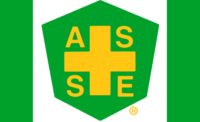A White House proposal to eliminate funding for the U.S. Chemical Safety Board signals a full retreat from two decades of progress against chemical disasters and would, if enacted, put American lives in jeopardy, health and safety experts told the House Chronicle.
The CSB mission to investigate chemical disasters and make recommendations is similar to the better-funded National Transportation Safety Board’s investigations of airline crashes, train derailments and bridge collapses.
Gutting the CSB is "standing up for death and destruction," said chemical safety consultant Paul Orum. "It's disrespectful to those killed in such incidents."
A Houston Chronicle investigation last year found that federal agencies, including the CSB, don't have enough resources to provide adequate oversight to facilities that handle dangerous chemicals.
The CSB was given no specific indication why it was targeted, though it falls in line with the president's pledge to cut broadly to pay for a beefed-up military and border protection.
The White House didn't immediately respond to a Houston Chronicle request for comment.
It was unclear where industry stands. The two major trade associations, the American Chemistry Council and the American Petroleum Institute, offered statements that didn't directly address the merits of eliminating the CSB.
Shakeel Kadri, executive director of the Center for Chemical Process Safety, a division of the American Institute of Chemical Engineers, said his group supports the CSB and says the agency's independent investigations are critical.
"We can't do that. I don't see anyone else being able to do that, either," he said.
It's widely believed the overall budget proposal was dead on arrival at the Capitol, as even Republicans blanched at what was and wasn't being cut.
"I think the Trump budget is a fantasy," said Rep. Gene Green, a Democrat whose district includes much of Houston's heavy industry. "I don't think so much of it will ever be considered."
That doesn't mean the CSB will survive unscathed. Among its 40 employees, some were already privately assuming that Congress would significantly scale back the agency this year.
Sam Mannan, director of the Mary Kay O'Connor Process Safety Center at Texas A&M University, called elimination of the CSB a "really sad matter."
"Everyone uses the CSB's videos and reports," he told the Chronicle.
Orum, the consultant, noted the gap between congressional authorization of the CSB in 1990, and its actual funding in 1998. The budget argument was that OSHA and EPA could handle chemical accident investigations. But they weren't as thorough, and industry preferred the CSB, because it didn't come in looking for violations, Orum told the Chronicle.
He expects "cooler heads" in Congress.
"Chemical incidents are highly visible when they happen," he said. "There's smoke, flames and news cameras. If it looks like they've undermined safety, it could come back to bite them."
Source: The Houston Chronicle
Image is from the 2013 West Fertilizer Co. explosion in West, Texas, which was investigated by the CSB.



